Tags :: Smart Robot (Artificial Intelligence)
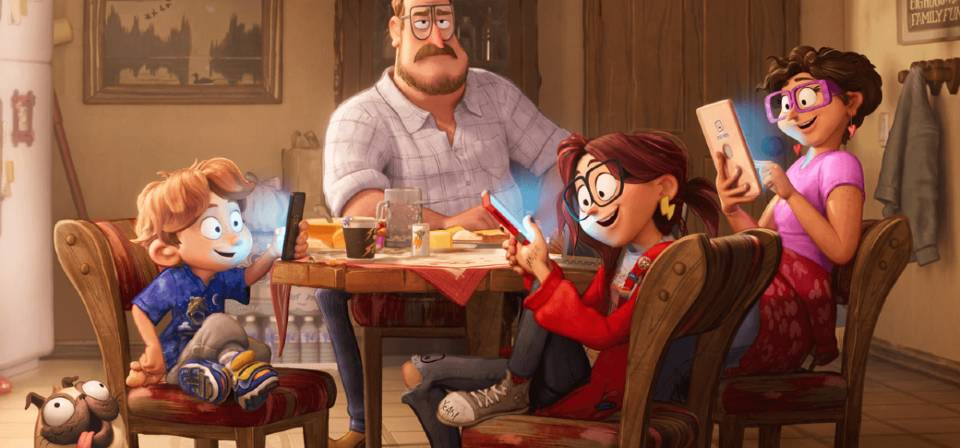
The Mitchells vs. the Machines (2021)
In some ways The Mitchells vs. the Machines harks back to Cloudy With a Chance of Meatballs. Most obviously, it’s another goofy, rollicking techno-apocalypse centered on a bumpy parent-child relationship between an awkward, gifted youngster and a handy but technophobic dad.
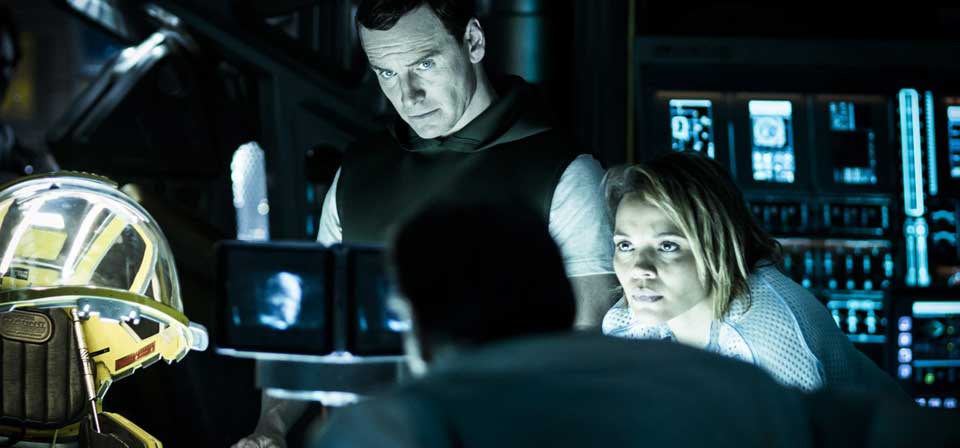
Alien: Covenant (2017)
To succumb to a regrettable but practically inevitable coinage, Scott wants to make the world of Alien great again — to remind us all what was so terrifying nearly four decades ago about being in space where no one can hear you scream.
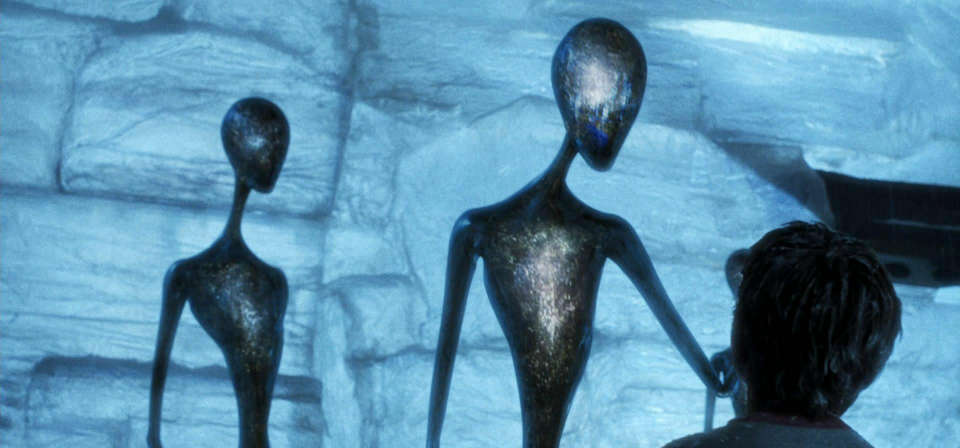
People keep lying about computer “creativity”
Nearly 15 years ago the British futurist Ian Pearson predicted that by 2010 the world’s highest-paid celebrity would be an artificial “synthespian.” That didn’t pan out, but now journalists and PR people are trying to hype A.I. entities as filmmakers behind the camera.
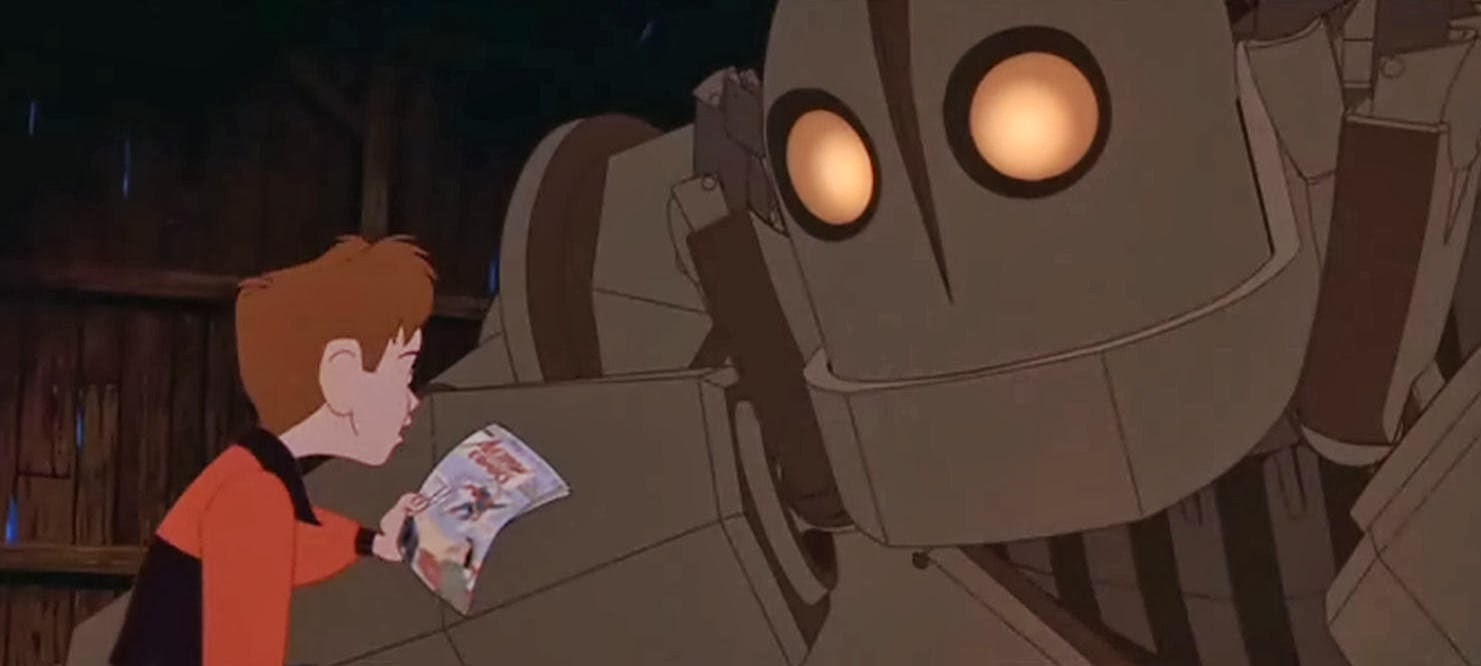
The Iron Giant (1999)
There is a purity to Brad Bird’s directorial debut The Iron Giant, based on the British poet Ted Hughes’ children’s novel The Iron Man, that is inconceivable in the family film landscape of today.
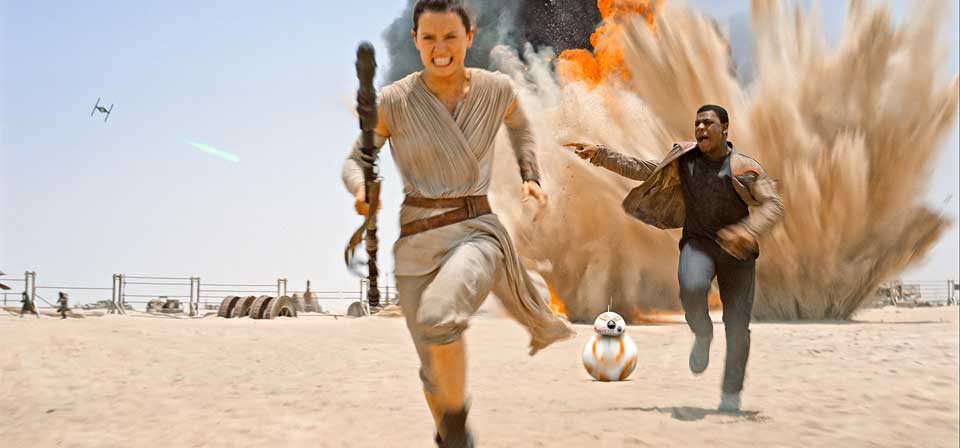
Star Wars: Episode VII – The Force Awakens (2015)
I smiled and laughed through much of the film. Why don’t I love it more? Why did The Force Awakens make almost no lasting impression on me?
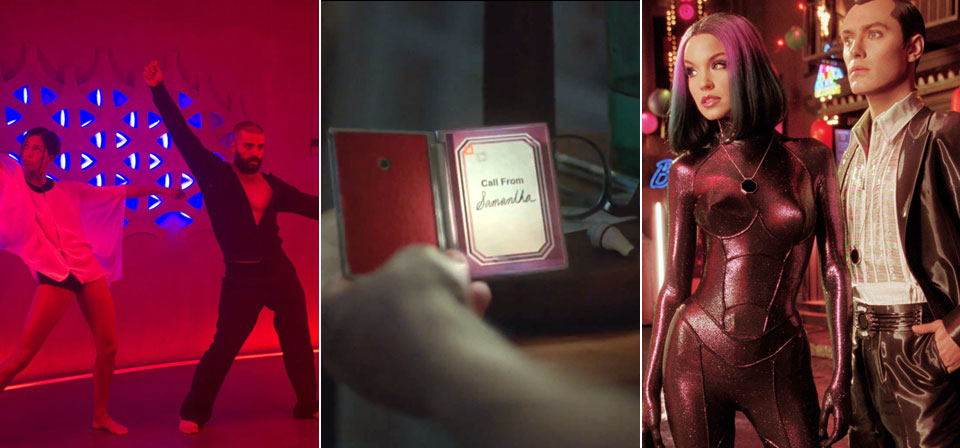
“Brother Ass” or “stupid apes”? Transhumanism, the Imago Dei and Hollywood
As technology progresses and the culture and the Gospel continue to draw further apart, transhumanist aspirations flourish, both as a worldview and in the world of popular culture.
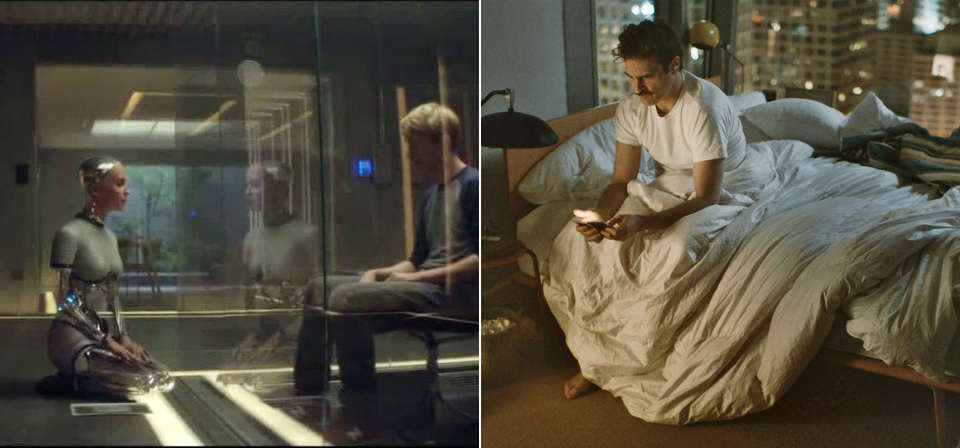
Computer dating: Artificial intelligence and robot sex in Ex Machina and Her
Alex Garland’s Ex Machina is the latest in a string of recent science-fiction films exploring questions around artificial intelligence, transhumanism and the role of technology in our lives.
Transformers: Age of Extinction [video] (2014)
If Michael Bay can take 165 minutes for his latest Transformers movie, I can take two minutes to review it.
Prometheus [video]
Prometheus in 60 seconds: my “Reel Faith” review.
Prometheus (2012)
I don’t mind that Prometheus raises big questions without ultimately answering them. Unanswered questions are part of life, and there’s no reason you can’t have them in art. I do mind that Prometheus raises big questions and has virtually nothing interesting, insightful or thoughtful to say about them. If the questions aren’t interesting in this film, why should anyone care whether they’re answered in another one?
Transformers: Dark of the Moon (2011)
Like the title phrase, which is recognizably English and yet obviously wrong, Dark of the Moon offers just enough vestiges of grammatical intelligibility to be recognizable as a bloated, steroid-inflamed simulacrum of a mindless summer blockbuster action movie. I almost think it would be better, or at least it would hurt less, if it were a bit more incomprehensible, although I’m told that its predecessor, Transformers: Revenge of the Fallen, actually was, and it didn’t help.
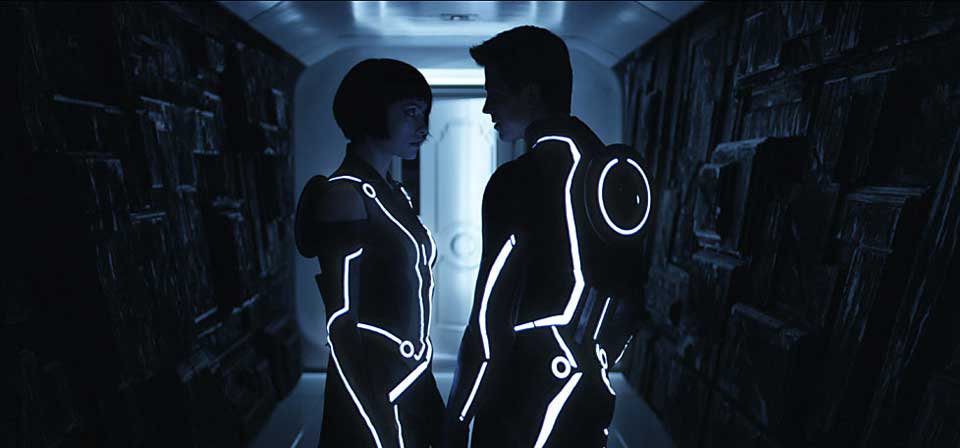
Tron: Legacy (2010)
In the years since Tron, of course, video games have come closer and closer to approximating reality, and computer-graphics in movies have gone further still — and, in a way, this is the problem with Tron: Legacy.
Moon (2009)
There’s an ambitious modesty to Duncan Jones’s debut film Moon, a smart, existential science-fiction drama with one onscreen actor that runs 97 minutes and goes nowhere more exotic than our planet’s natural satellite.
The Day the Earth Stood Still (2008)
I don’t object in principle to Keanu–Klaatu’s message. It’s just not a very interesting or enlightening thing for an ambassador from the universe to say. It’s sort of a letdown, not unlike like having the pope show up at your house only to check the batteries in your smoke detectors. There’s nothing wrong with that. You just hope he has more on his mind.
The Day the Earth Stood Still (1951)
More thoughtful and restrained than most sci-fi of the period, The Day the Earth Stood Still has aged better than almost all of its peers. … Decades later, it remains a thought-provoking, worthwhile parable.
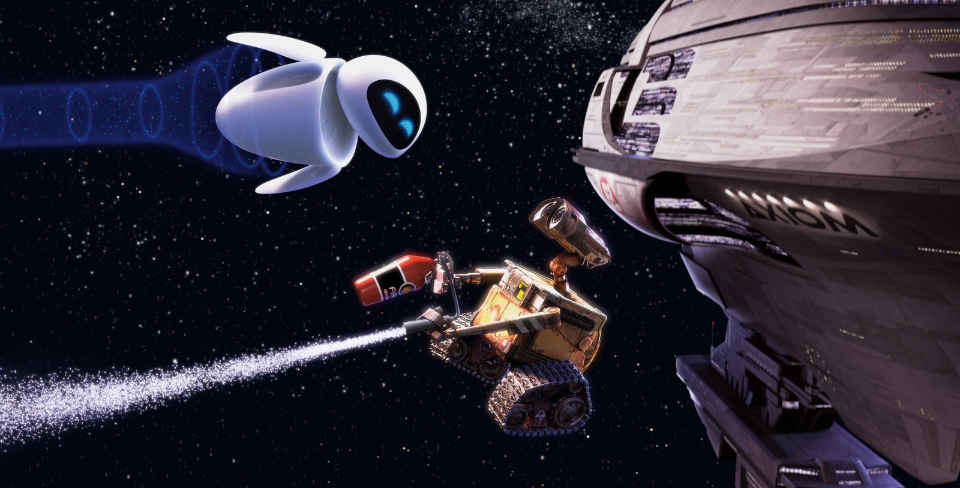
WALL•E (2008)
Even Pixar has never attempted anything on a canvas of this scale. From Monsters, Inc.’s corporate culture to Finding Nemo’s submarine suburbia, previous Pixar films have never strayed too far from the rhythms of real life. … WALL‑E creates a world that, despite clear connections to contemporary culture, looks and feels nothing like life as we know it, with unprecedented dramatic and philosophical scope.
Forbidden Planet (1956)
At once intelligent and campy, Forbidden Planet is an intriguing, perhaps overrated sci-fi classic that borrows plot points from Shakespeare’s The Tempest and strongly anticipates “Star Trek” in its sci-fi milieu — but its driving fears are the “monsters from the id,” the wayward, concupiscent passions of our own hearts.
Star Wars: Episode II - Attack of the Clones (2002)
It doesn’t help that this is now the second Star Wars movie in a row in which the "wars" alluded to in the series title are still basically in the future (one climactic skirmish aside). Lucas should never have gotten bogged down in political debate, let alone given two whole films of it.
Star Wars: Episode I - The Phantom Menace (1999)
It’s not just that the banter and camaraderie of Luke and Han and Leia was so much more fun than the often wearying interactions of Anakin and Amidala and young Obi-Wan — though that’s part of it. More importantly, the stories themselves largely lack the strong center of good versus evil that was the heart of the original trilogy.
Star Wars: Episode III – Revenge of the Sith (2005)
Crippled as he is by the decisions of the first two films, Lucas still manages to invest the final chapter of his sprawling space opera with the grandly operatic spirit of the original trilogy. It’s still cornball, yes, and with all the usual weaknesses. But Episode III at last has heart.
Star Wars [Episode IV – A New Hope] (1977)
An orphaned hero. An imprisoned princess. A wise old hermit. A magic sword. A fearsome dark lord. Such conventions are the stuff of myth and romance — yet, inexplicably, the first Hollywood film to give these mythic archetypes their due was not some Arthurian romance or epic costume drama.
Star Wars: Episode VI – Return of the Jedi (1983)
Thematically, where the first Star Wars movie offered a simple vision of good triumphing over evil, and The Empire Strikes Back expressed the problem of evil and the necessity of sacrifice, Return of the Jedi tackles nothing less than resisting temptation, compassion for enemies, and the possibility of redemption for even the most evil.
The Hitchhiker’s Guide to the Galaxy (2005)
[T]he new Hitchhiker’s Guide has the whimsical look and absurdist feel of Adams’s universe, which remains best known in its novelized form but which originated as a radio series and was later realized as a BBC television series, a set of records, a computer game, and even stage adaptations. What it’s missing is the subversive commentary, the razor-edged deconstruction of human foibles. We get Adams the absurdist, but not Adams the provocateur.
Robots (2005)
Robots combines the visionary alternate world-building of Monsters, Inc., the flair for gadgetry and gimmickry of an old Fleishers cartoon, and most sneakily of all, the toybox nostalgia of the Toy Story movies, with cleverly worked-in toy and game references — “Operation,” Slinky, Wheelo — that will have adults grinning with recognition.
Metropolis (1927)
Surreal, sprawling, and operatic, drawing on biblical and medieval Christian imagery as well as H. G. Wells’s The Time Machine, Fritz Lang’s deeply influential pulp allegory Metropolis colonized a new realm of the imagination that has shaped subsequent science fiction from Flash Gordon to Star Wars, from "The Jetsons" to Blade Runner.
2001: A Space Odyssey (1968)
2001: A Space Odyssey doesn’t just depict a quantum leap forward in human consciousness — it practically requires such a leap, on an individual scale, from the viewer. Like the hominid in the first act who looks at a bone and suddenly sees what no hominid has ever seen before, one must watch 2001 in a different way from other films.
The Matrix Reloaded (2003)
Morpheus’s expository speech to Neo in the first film about the history of the power behind the Matrix — particularly the bit about the solar issue and the moment when he holds up the battery — is both the least persuasive and the least interesting thing about the film. It’s a perfunctory plot-level explanation that one accepts for the sake of the action and the hero’s journey, not something one particularly cares about for its own sake.
The Matrix Revolutions (2003)
Beyond that, unlike Reloaded, which featured an impressive but hardly groundbreaking freeway chase scene as its biggest set piece, Revolutions has startling new sights to offer, notably a spectacular siege scene that recalls the first act of The Empire Strikes Back with its Walker attack on the Hoth Rebel base. In fact, The Matrix Revolutions arguably had the potential to be the Empire Strikes Back to The Matrix’s Star Wars, had the Wachowskis not squandered that opportunity six months ago with Reloaded.
The Matrix (1999)
Be that as it may, scratch the surface of the vast body of commentary and discussion devoted to The Matrix, and you could start to get the impression that Morpheus’s comment is a fairly accurate description of the film itself. The Matrix has been described as everything from a neo-gnostic parable to a Christian allegory, from a strikingly innovative action film to a derivative rip-off of kung-fu clichés and stock anime conventions. Commentators have found influences from Plato and Descartes, Lewis Carroll and Star Wars. At the end of the day, can anyone really say what The Matrix is?
Simone: Reality and Fantasy in Hollywood (2002)
The first line of the film’s closing credits read, "Introducing S1m0ne as Herself." At the time of the early-look screening I attended, no further information about "Simone" was readily available. The movie’s production notes, website, and Internet Movie Database entry were all silent about who, or what, Simone might be.
Star Wars: Episode V – The Empire Strikes Back (1980)
The Empire Strikes Back is the backbone of the Star Wars saga. It takes the story and themes of the first film into deeper waters.
Star Wars [Episode IV – A New Hope] (1977)
(Review by Jimmy Akin) Like earlier pulp films, Star Wars draws on mythic and fairy-tale archetypes: a young orphan-hero; a mysterious wizard-mentor; a fearsome dark lord; a magical sword; a princess held prisoner; a gallant rescue mission. Yet on a deeper level, Star Wars is more convincing as a myth or fairy tale in its own right.
Red Planet (2000)
At least there’s stuff worth looking at. First-time film director Antony Hoffman has an eye for visuals; and the Martian landscape, shot in an Australian quarry and a Jordanian wadi, is stark and compelling. Then there’s the constantly swiveling, gyrating AMEE, a preposterous plot device of a robot which, in its (or "her") feline grace and unlimited range of free-flowing motion, resembles a high-tech computer-generated cross between Transformers and Battle Cats. I liked the little touches almost as much: the crew uses nifty, collapsible hand-held computers with a flexible, glossy display that pulls out from and rolls up into a cylindrical CPU like a window shade, looking for all the world like something you might actually see in a Macintosh commercial from 2050, when the movie is set.
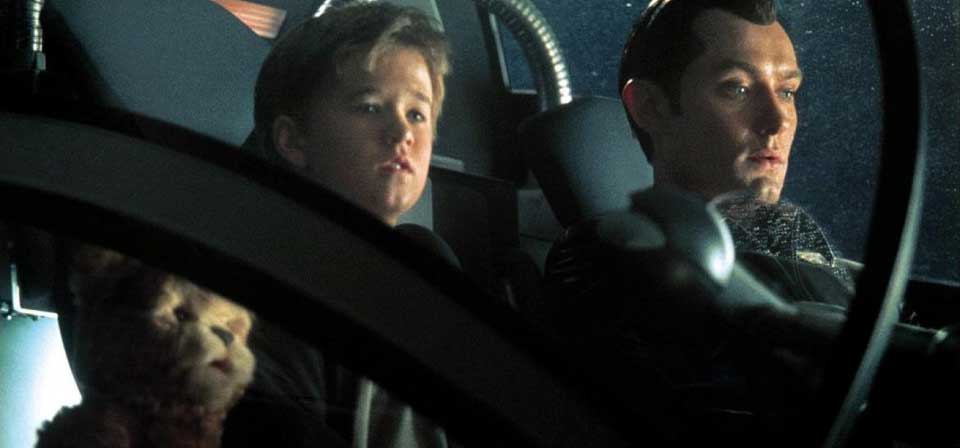
A.I. Artificial Intelligence (2001)
A.I. is a science-fiction fairy tale: a terrible, revisionistic revisiting of "Pinocchio," the story of the little manmade boy who wants to be real — as told by a nihilist who condemns Gepetto for creating Pinocchio, the world for laughing at him, and the Blue Fairy for leading him on when he’s better off being made of wood, which will after all be around long after Gepetto is pushing up daisies.
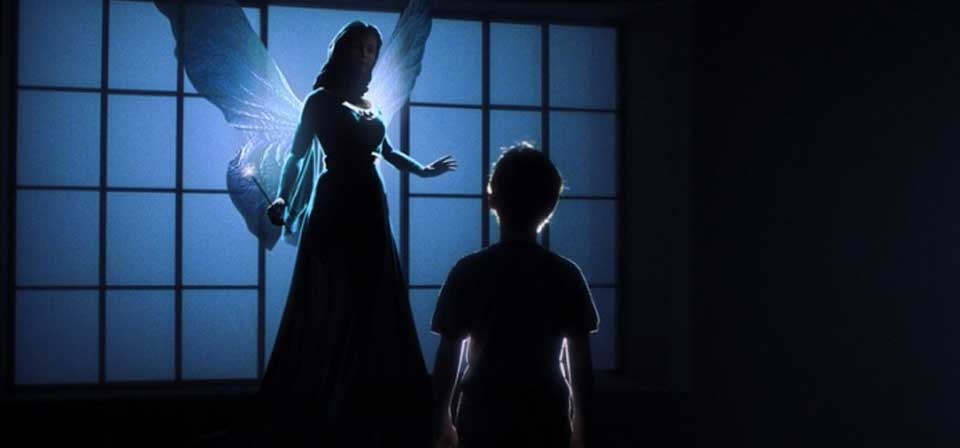
“Is it a Game?” Faith, Despair, and Cosmic Loneliness in A.I. Artificial Intelligence
(Co-written with Chris Otsuki) "Those who made us," Joe explains to David, with a glance at the statue of the Blessed Mother, "are always looking for the ones who made them."
Star Wars: Episode V – The Empire Strikes Back (1980)
(Review by Jimmy Akin) In the process of adding new depth to familiar subjects, the film often takes unexpected turns. One of the subtlest of these — so subtle that it tends not to be noticed by the audience — involves the mythic dimensions of Luke’s transformation from backwater farmboy to mystical adept.
Star Wars: Episode VI – Return of the Jedi (1983)
(Review by Jimmy Akin) In the end, Star Wars reveals itself to be not just the most ambitious science-fiction epic brought to the big screen but a story expressing the importance of family and love, the danger of moral corruption, and the possibility moral redemption.
Recent
- Benoit Blanc goes to church: Mysteries and faith in Wake Up Dead Man
- Are there too many Jesus movies?
- Antidote to the digital revolution: Carlo Acutis: Roadmap to Reality
- “Not I, But God”: Interview with Carlo Acutis: Roadmap to Reality director Tim Moriarty
- Gunn’s Superman is silly and sincere, and that’s good. It could be smarter.
Home Video
Copyright © 2000– Steven D. Greydanus. All rights reserved.